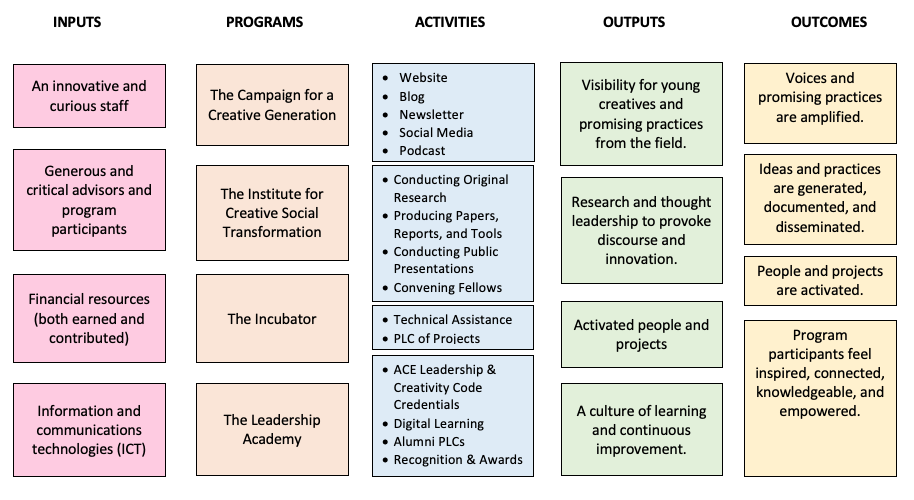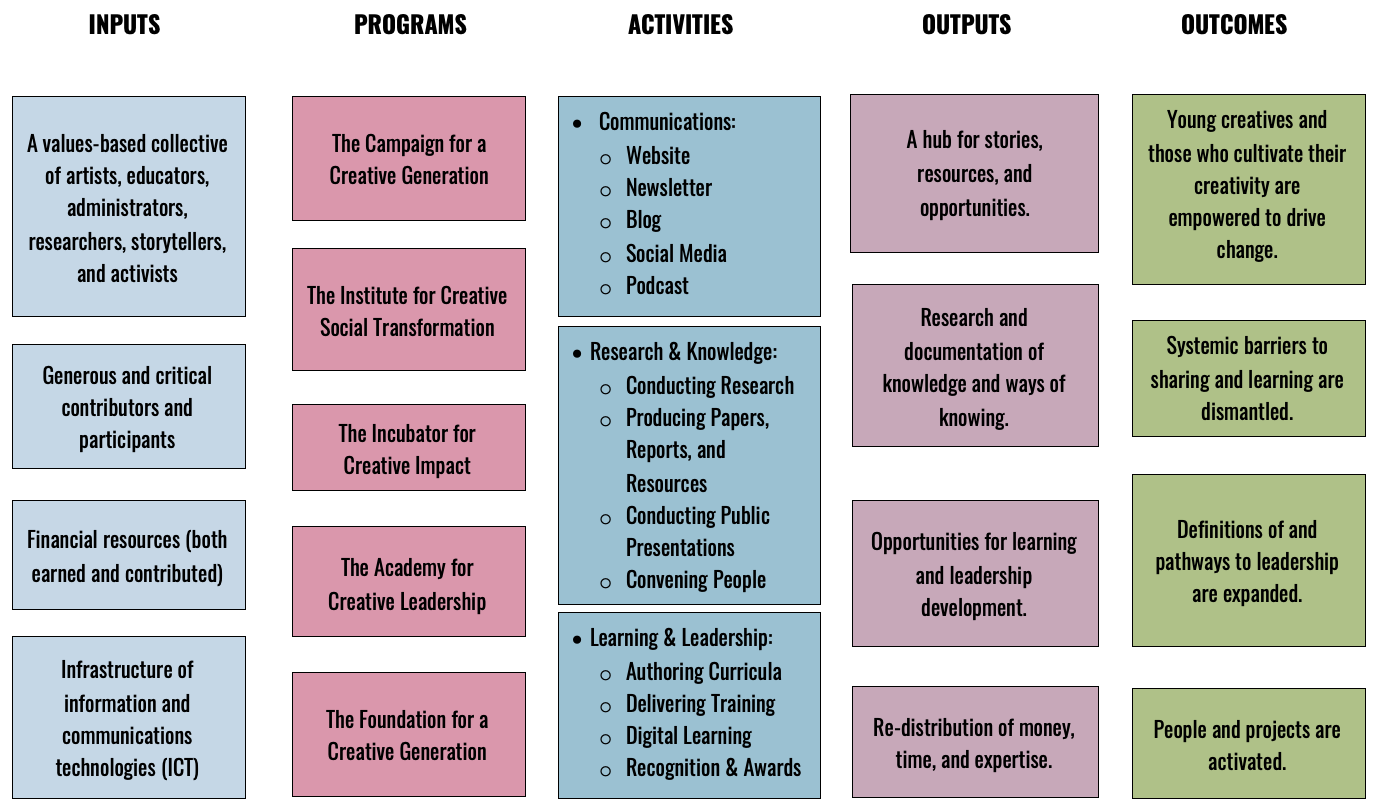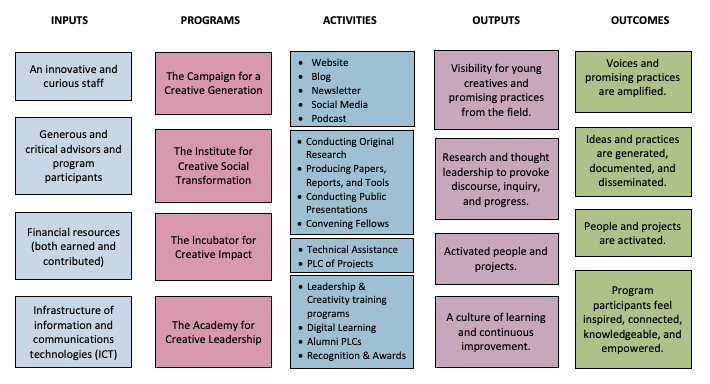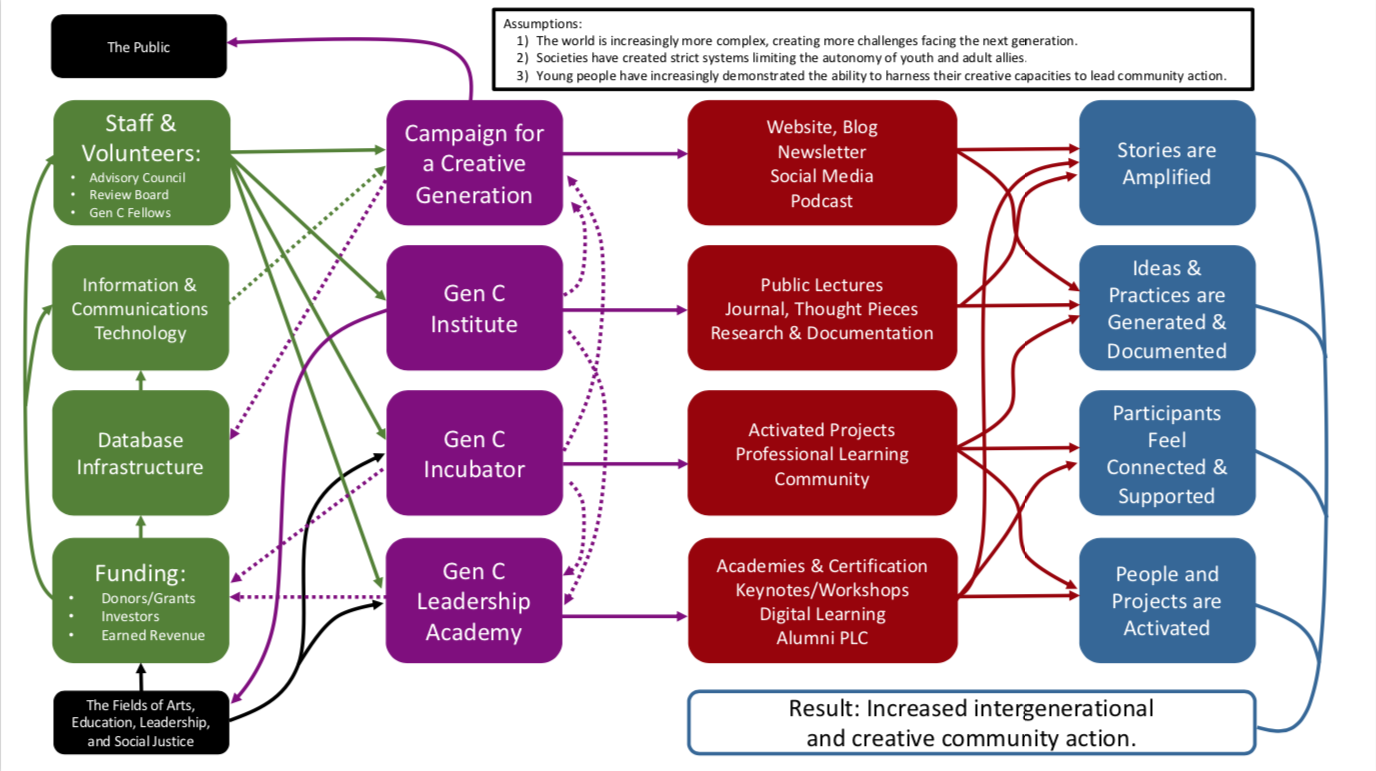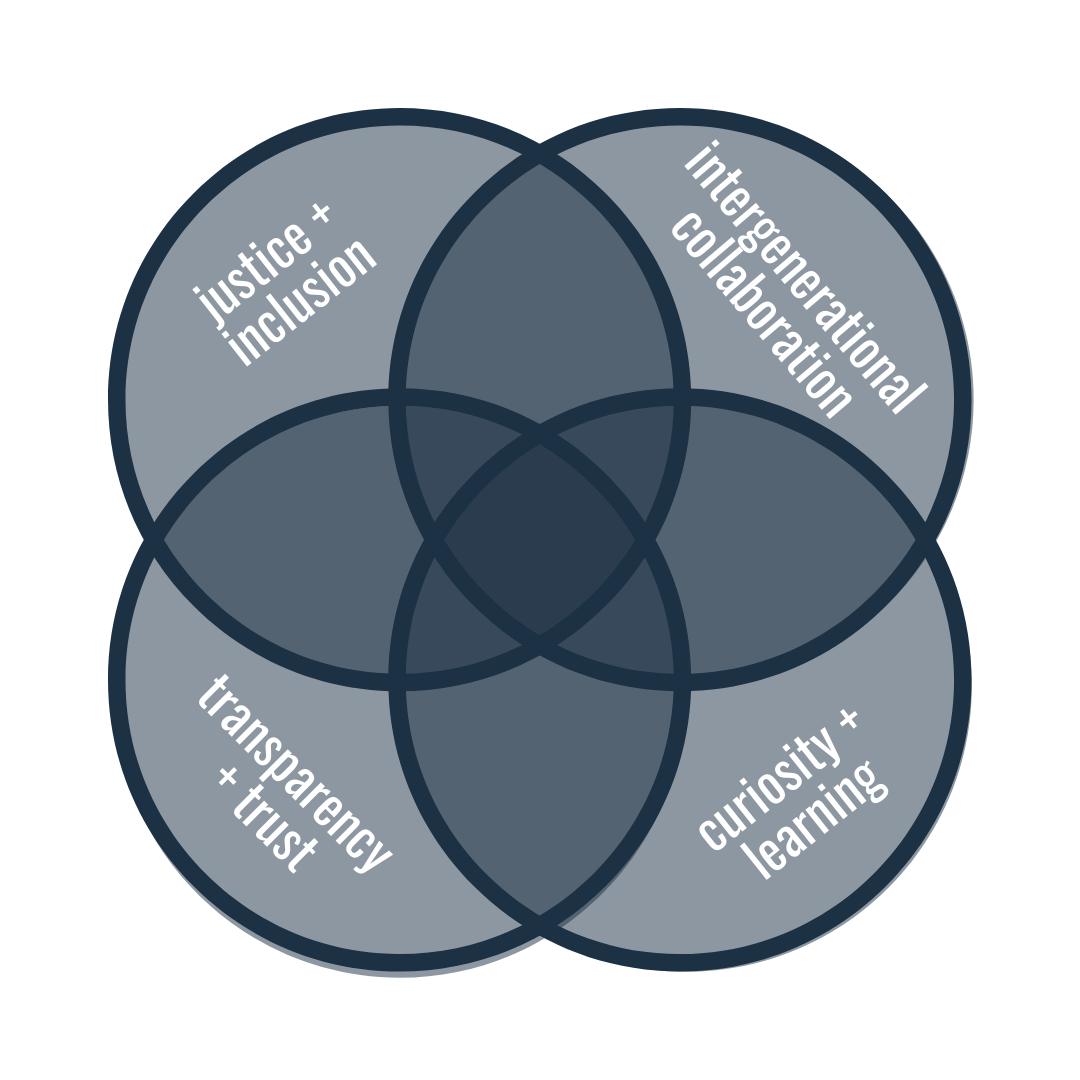By: Jeff M. Poulin
Last year, around this same time, my colleague, Bridget Woodbury (who oversees our organizational strategy work), wrote to you about the new chapter for Creative Generation: one that emerged from extensive summer retreat-ing in 2021 and the implementation of tangible action plans being put into place throughout 2022. Here we are one year later having achieved a tremendous amount in 2022 and looking forward to a more grounded, impactful 2023.
Viewing Our Past to Inform Our Future
In follow up, I wrote about our refined mission, vision, and goals – these evolved rapidly since our inception in 2019. As a reminder, Creative Generation began as a research initiative in April 2019 exploring the language used to describe the outcomes of arts and cultural education. Upon completion of the first study, the scope of our research expanded globally to understand how arts and cultural education can enable young people to lead social change. Future projects unveiled evidence of a clear need for field-wide paradigm shifts in pedagogies, organizational practices, public policies, and leadership pathways within the intersectional sectors of culture, education, and social change. So, Creative Generation — the organization —was born. You can read more about this history here.
As a Collective, we are very clear about our mission:
Creative Generation collaborates with young creatives and those who cultivate their creativity to take local actions towards global changes in pursuit of a more just world.
Further, we are even more clear about our vision – our North Star that guides our everyday work:
What became apparent through this process, was the need to articulate the strong adhesive which connected these elements together – our values.
Throughout 2022, we focused a lot on our values, seeking to embody them in our daily work, our internal operations, our ways of knowing, and – most importantly – our tactics for engaging with our stakeholders, collaborators, and the fields within which we work. This was both hard and important – check out my blog about holding this tension here.
One specific tension that has been held since our inception in 2019 is the ability to remain responsive to our constituents (and the world around us) while also maintaining a cogent strategy to achieve impact. As such, we articulated and regularly refined a theory of change, which guided our internal operations towards our external impact.
For those who like a walk down memory lane, check out the below time-lapse of our theories of change since 2019!
However, as we have solidified our mission, vision, goals, and values, it is now time to refine, once more, our theory of change based on our lived experience the past (almost) four years!
Determining Our Ways of Working
As a values-forward organization, the team at Creative Generation believes that how we do our work is just as important as the work itself. As a collective, we are guided by our values within each and every project we pursue. Additionally, we have considered our numerous assets and infrastructures, which enable our work, and constructed our refined Theory of Change below:
Embedded within this theory of change are three primary approaches, which undergird our five signature programs and the myriad projects we pursue.
Technical Approach: As artists, educators, administrators, researchers, storytellers, and activists, we each bring unique skills and perspectives, integrating them to maximize impact. In general, we co-create projects which work at the intersection of four primary technical domains: narrative building, impact evaluation, individual development, and organizational strategy. We recognize the intertwined natures of these, and other technical domains, thus we seek to map the integration to derive the most cogent approach for achieving our goals.
Organizational & Management Approach: In alignment with our values and theory of change, Creative Generation has devised organizational policies and management procedures to enable a broad swath of projects to progress simultaneously. Our approach is centered on our and is operationalized in four common domains: justice + inclusion, intergenerational collaborations, curiosity + learning, and transparency+ trust.
Collaborative Ethnographic & Heuristic Inquiry Approach: As an organization that strives to build capacity, increase learning, and disseminate knowledge through sharing, we have crafted a collaborative ethnographic and heuristic inquiry approach – in the form of a well-articulated model written more about here – to guide our work. This model relies on critical reflection, strategic pauses, and numerous steps, which align to our Theory of Change.
Through these approaches, we have also articulated a number of strategies for each of our five signature programs – more on this in future blogs!
Let’s Get To It
As I look toward our work in 2023, I am so excited about this renewed clarity in our approach. I truly believe that our collaborative work as a consultancy building capacity + our inquiries to elevate learning as a think tank + our strategic sharing as a service organization will have maximal impact with our individual constituents, organizational collaborators, and the fields within which we work.
And as a shameless plug! Should you be interested in collaborating with us and working in the ways that we have outlined above, don’t hesitate to get in touch! We are always up for a chat – drop us a line at info@Creative-Generation.org!
-
Poulin, J. M. (2023, February 7). Refining a Theory of Change. Creative Generation Blog. Creative Generation. Retrieved from https://creative-generation.org/blogs/refining-a-theory-of-change
-
A theory of change is a common method used to describe how specific actions lead to specific changes within a particular context This blog explores Creative Generation’s theory of change. The author examines the tension that exist between the organization’s ability to remain responsive to its constituents while also maintaining a cogent strategy to achieve impact.



